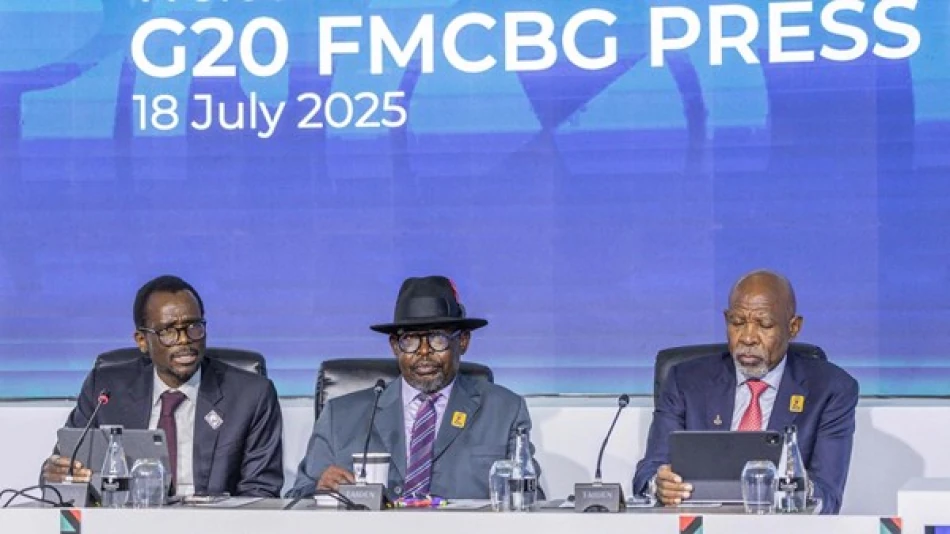
G20 Leaders Reach Consensus on Wide-Ranging Issues in Joint Statement
G20 Finance Ministers Break Deadlock with Rare Joint Statement on Global Economic Threats
After months of failed negotiations, G20 finance ministers have finally reached consensus on a joint statement addressing the mounting economic challenges facing the world economy. The breakthrough, achieved during meetings in Durban, South Africa, signals a critical moment of cooperation among the world's largest economies as they grapple with interconnected crises threatening global financial stability.
A Hard-Won Diplomatic Victory
The joint statement, released by South Africa's G20 presidency, represents a significant diplomatic achievement after multiple unsuccessful attempts throughout 2024. Finance ministers from the group's 19 member nations plus the European Union and African Union had repeatedly failed to find common ground in previous meetings, highlighting the deep divisions over how to address global economic pressures.
The consensus document identifies several key threats to worldwide economic stability: ongoing wars and conflicts, escalating trade disputes, persistent supply chain disruptions, soaring debt levels, and increasing natural disasters. According to the statement, these interconnected challenges are undermining economic growth, financial stability, and price stability across both developed and emerging markets.
Why This Matters for Global Markets
The ability to produce a joint statement after months of deadlock suggests that economic pressures have reached a level where even politically divided nations recognize the need for coordinated action. For investors and markets, this represents both a warning and an opportunity.
Market Implications
The acknowledgment of multiple simultaneous threats validates concerns that have been driving market volatility throughout 2024. Currency fluctuations, commodity price swings, and supply chain bottlenecks have created an environment where traditional economic models struggle to predict outcomes. The G20's formal recognition of these challenges may prompt more aggressive policy responses from central banks and finance ministries.
Debt Crisis Recognition
The statement's emphasis on "soaring debt levels" is particularly significant for emerging markets, many of which are facing potential defaults. Unlike previous financial crises that were largely contained to specific regions, the current debt burden spans both developed and developing nations, creating systemic risks that require multilateral solutions.
Historical Context and Precedent
The G20's struggle to reach consensus mirrors similar challenges faced during the 2008 financial crisis, when initial disagreements over stimulus measures delayed coordinated responses. However, the current situation is more complex, involving geopolitical tensions that didn't exist during the previous global financial emergency.
The inclusion of both the European Union and African Union in the consensus reflects the group's evolution from a primarily Western-dominated forum to a more representative global body. This broader representation, while more inclusive, also makes agreement more difficult to achieve.
Looking Ahead to Johannesburg
The finance ministers' breakthrough sets the stage for the upcoming G20 leaders' summit in Johannesburg, where heads of state and government will need to translate this consensus into concrete policy actions. The South African presidency's success in facilitating this agreement positions the summit as potentially more productive than many observers had expected.
For global economic stability, the key question is whether this diplomatic progress can translate into coordinated fiscal and monetary policies. The interconnected nature of the identified challenges—from supply chain disruptions to climate-related disasters—requires responses that go beyond traditional economic tools, potentially reshaping how international economic cooperation functions in an increasingly multipolar world.
Most Viewed News

 Layla Al Mansoori
Layla Al Mansoori






